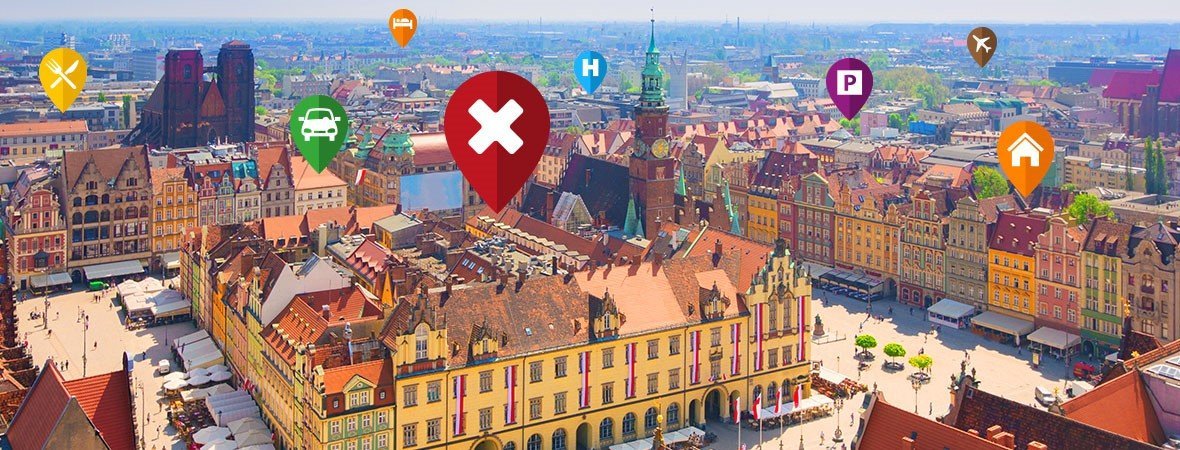2018-10-29 17:30 |
CoinSpeaker
Location-based Apps Encourage Local Communities Use Blockchain and Cryptocurrencies
What if there was a currency that encouraged people to cooperate and do things for each other? What if people were incentivized by a spirit of growth and collaboration?
Cryptocurrencies are (by definition), decentralized. That is part of their competitive advantage and the use of a blockchain would make the process fair. But we’re getting ahead of ourselves. First, let’s talk blockchain.
Blockchain is most widely known as the technology behind Bitcoin and Ether (cryptocurrencies). At its core, the blockchain system works like a decentralized ledger, recording cryptocurrency transactions across multiple computers and using cryptocurrency as a medium of exchange for whatever is being transferred between the network’s users.
Cryptocurrency acts as a monetary reward but can be customized to incentivize people in a network to engage in activities that benefit others in the ecosystem. How can this work in the physical world on a local level?
Well, local businesses depend on word of mouth and local advocates to grow and survive, and many provide discounts or coupons on various products as part of their advertising and based on the location of their customers. With blockchain, a location-based app with promotions or advertising is a great fit as it can better align the interests of those being targeted and those doing the targeting. The result – a highly mutually beneficial relationship.
A cryptocurrency can be used in a variety of ways, and one way is to incentivize both businesses and the consumers. For example, by enabling rewards as cryptocurrency tokens, businesses can compensate people in their local area who complete tasks that create value for them. This can range from leaving a positive review, liking a post in social media, or simply following them in the location-based app.
Location-based app tokens can subsequently be spent at the local shop, just like cash, or in the form of a discount for “having completed a service.” In this manner, a self-sustaining system recycles value in an integrated, local way, meaning resident shops do not have to pull their hair out spending resources they don’t have to win loyal business. Rather, they can achieve “advertising” results in exchange for a small discount, or even have something done to enrich the local area where the shop is located.
A real-life example of this is Check coin (a new cryptocurrency) that enables physical outlets that accept their currency to set their business up as a checkpoint and reward customers that check in to shop. is one of the first GPS-based cryptocurrencies, and groundbreaking in that it’s designed to be used on mobile devices and tablets. To earn coins, users need to get out of their homes and explore, and the currency features a standard blockchain that records and verifies all transactions.
Blockchains offer local businesses access to data that can optimize their efforts in ways that are more accessible (from a financial point of view) than ever before. The technology has been constructed ensuring that user data remains protected. Blockchains feature no middle-men, and as such, can offer local businesses the ability to fine tune their promotions to a captive audience.
Mobile devices have the capability to be a portal to the best local experiences, and blockchain and location-based apps are helping to construct an express lane where local folks can quickly find the businesses most enthusiastic in attracting their business.
In this larger equation stability is vital as ordinary people do not trust cryptocurrencies. The more prices rise and fall, the more ordinary people will shy away from using the coins for everyday transactions. As cryptocurrencies gain traction, they will expand further into location-based apps and platforms because they are a natural fit at the micro-transaction level and location-based apps facilitate value exchange within a network of trust – the community.
This network can be a geographical area like a neighborhood where people know one another, or it can be a SIG (special interest group) where the people come together and get to know each other based on reputation and shared interests.
People seek a greater connection to their local community. Many however do not know how to engender such a connection, and most times become frustrated and thus opt for the easy – patronizing anonymous malls or websites that have no inherent connection to where we live.
Cryptocurrencies are community-based financial instruments geared at providing the most direct transaction possible between merchant and customer. Once one can eliminate the “noise” from an anonymous advertising side and be able to key in on what a customer desires and what a shop-keeper offers, that’s the most natural form of capitalism one could ask for.
Geme.io is a location-based, community map and information sharing app exploring the use of cryptocurrencies for socially related activities that serve as a benefit to the community at large. Offering one’s help to cut an elderly woman’s lawn, or clean a public soccer stadium, or report potholes would all be rewarded with a cryptocurrency that could be spent in a local shop. This “offer” stimulates clever work, and people want to engage in clever work. Many times, we lack the proper incentives, and cryptocurrencies can get us there.
There is little that’s a match made in heaven, but this is darn close. Location-based apps are technology’s answer to anonymous globalization. Cryptocurrencies are an excellent fit in local and trusted networks – our communities.
Location-based Apps Encourage Local Communities Use Blockchain and Cryptocurrencies
origin »Bitcoin price in Telegram @btc_price_every_hour
High Performance Blockchain (HPB) íà Currencies.ru
|
|


